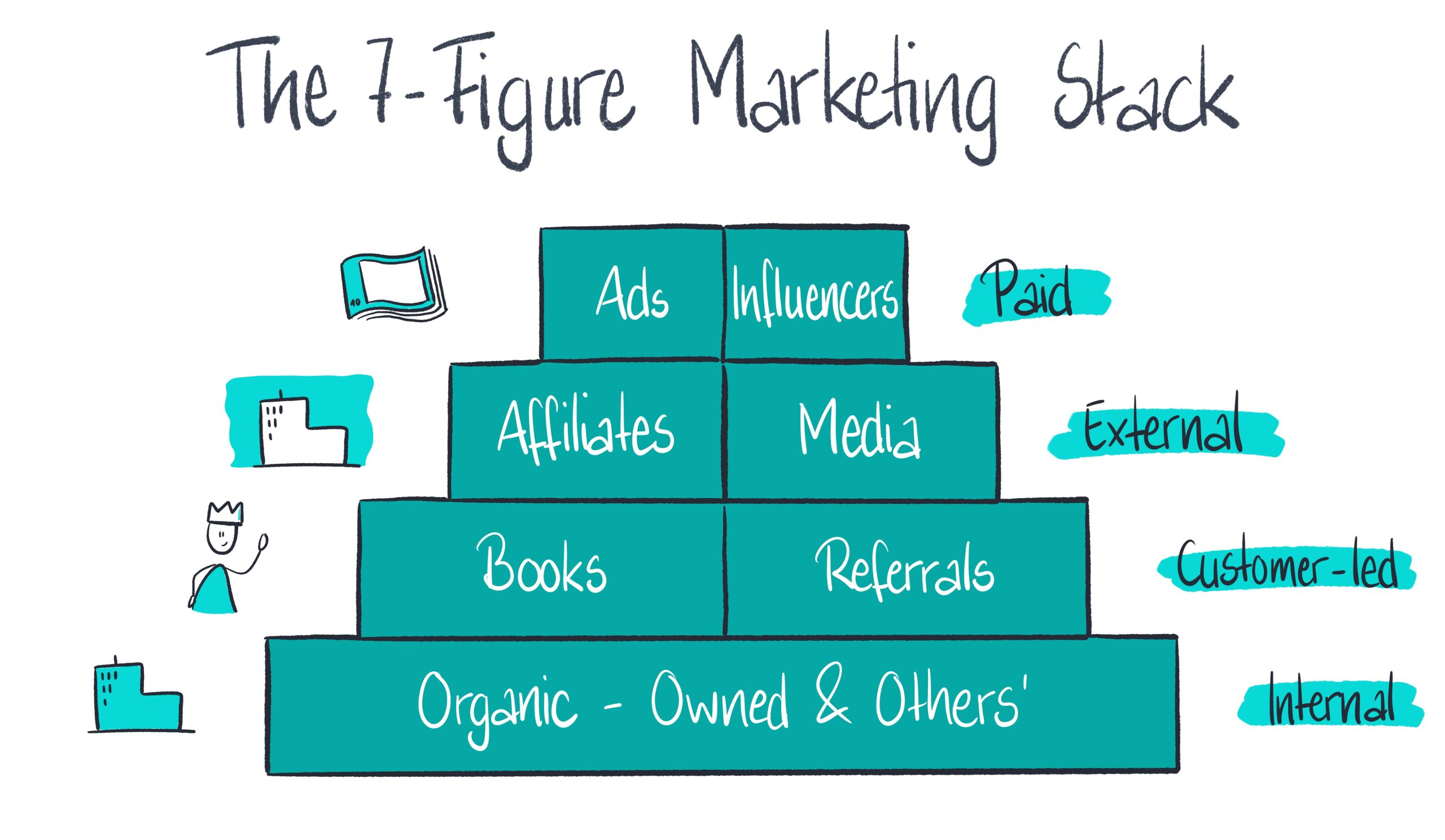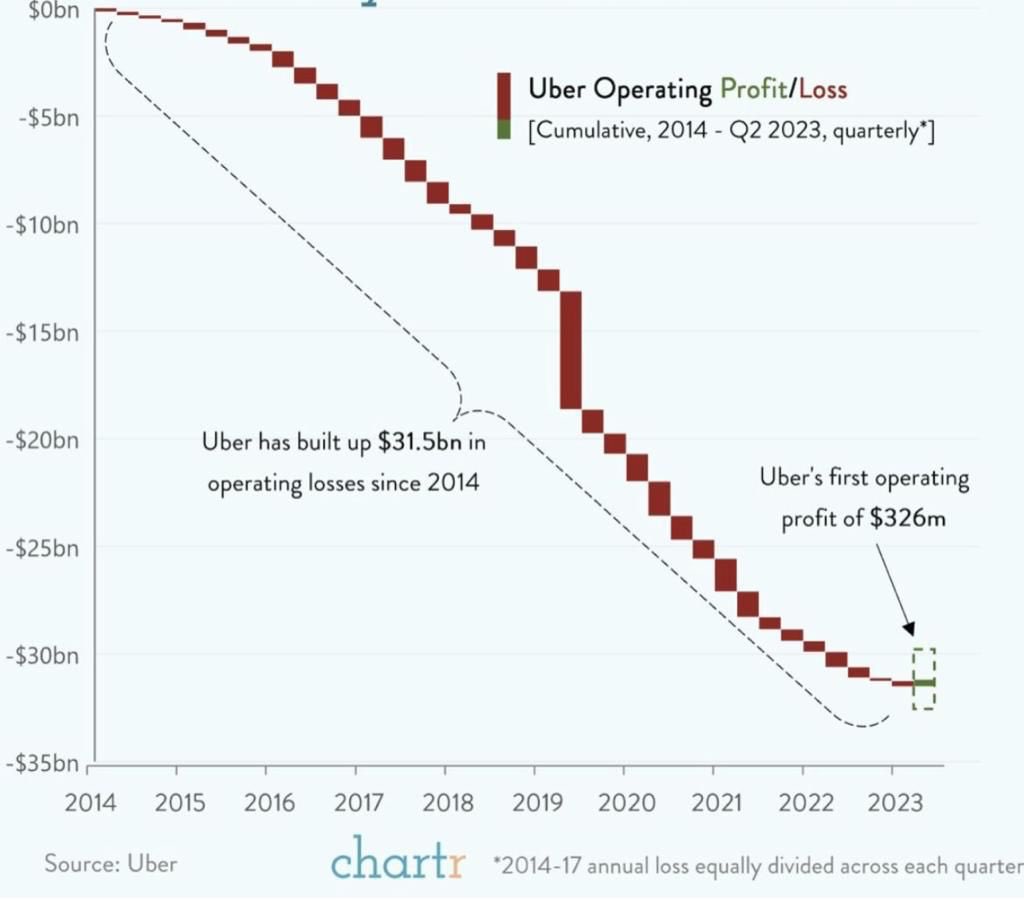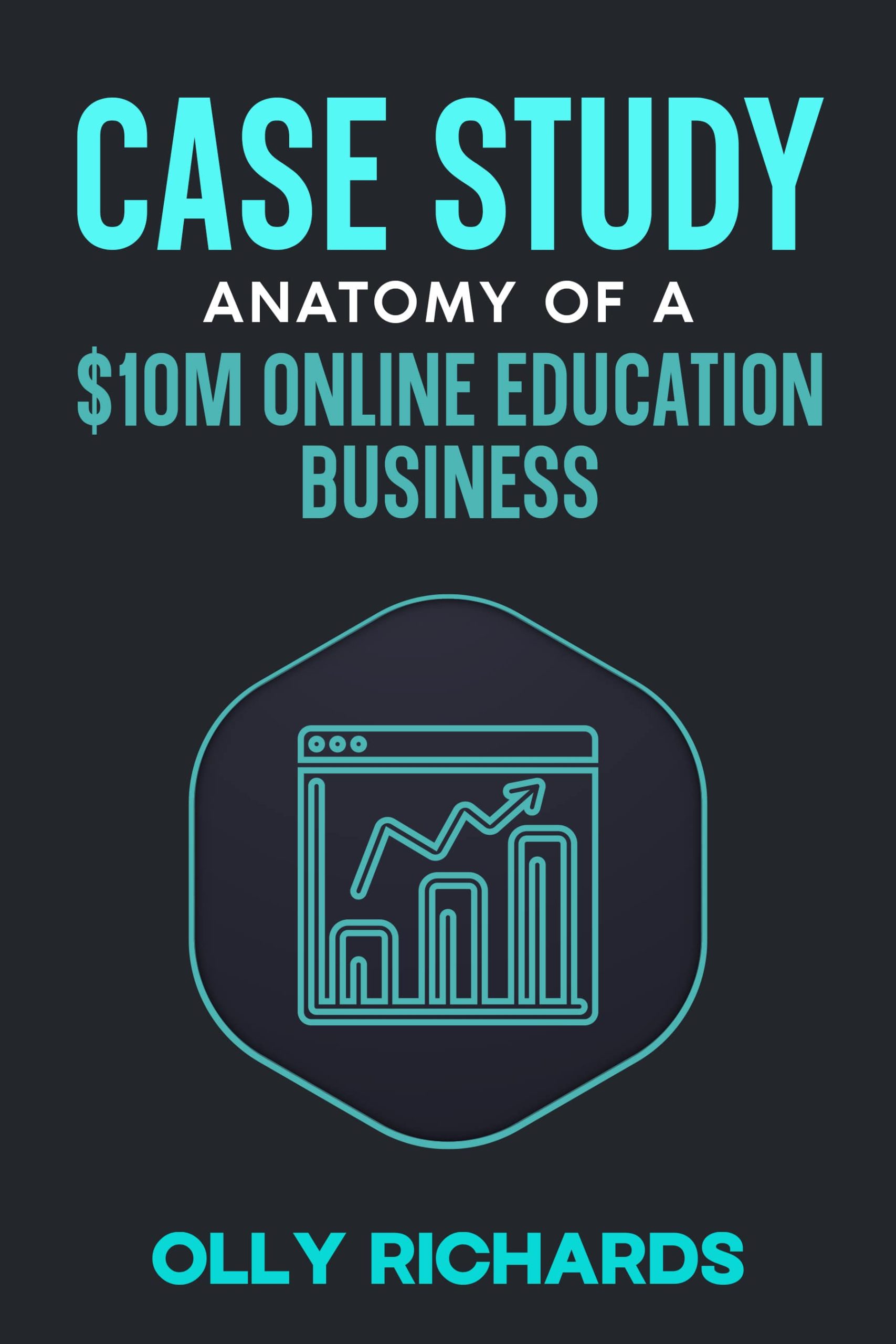I was talking to a friend the other day who’s on a mission to build a billion-dollar company.
“This is my billionaire play!” he told me.
If you know me, you’ll know that the whole billionaire mission isn’t for me.
Not my thang.
I just don’t care enough. I’m probably not smart enough either.
But it sure is fun talking to people who are doing it.

During the chat, he said something that hit me hard:
“I’m completely zen. I’m just surrendering to the process. It may all go to s***, but I’m fine with that.”
The reason this hit me hard is because it’s the exact same mindset that I’ve tried and struggled to reach for a long time.
Non-attachment to outcomes.
In other words: Not being personally attached to the success (or otherwise) of the business.
But how is it possible not to care how things go
How can you sit back and relax when so much in your life depends on how your business goes?
This newsletter is about non-attachment.
Quite frankly…
I’m a bit nervous writing this one. I’ve got no idea how it’s gonna go down.
Please note – this particular issue is squarely intended for those making 7+ figures.
Others will probably find it completely obnoxious.
But whatever…
That’s what I got.
Enjoy.
But First!
Starting in 10 days, I’m running a 5-day live workshop.
It’s called the 7-Figure Marketing Stack.
In the workshop, I’m going to be showing you a breakdown of how the marketing works inside my $10M online education business, StoryLearning:
So much online training is “Do what I say, not what I do”.

This is different.
This isn’t training.
This is simply a deep look behind-the-scenes at how a real online business uses great marketing to make millions of dollars.
If you think you’d enjoy that, then it might be for you.
Click here for more information:
(Start on Monday 28th August)
The Three Battles
In my experience, there are three battles you have to fight with yourself in business:
- Ego
- Lifestyle
- Finance
Ego - This is what you think you, or your business, should be (seen to be) doing or achieving.
Lifestyle - This is the impact of the business in your day-to-day life, including time, thoughts, and obligations.
Finance - This is your financial security, and how dependent you are on business performance.
Here’s what I believe:
You will never be able to build your business to its full potential until you develop non-attachment to these things.
That is to say, you can make business decisions without worrying about how those decisions will impact your ego, lifestyle or finances.
If you detach your personal wellbeing from business outcomes, you can:
- Allow the business to grow on its own merits, fully nourished and resourced
- Live a personal life free from the gravity and cycles of the business
Life is about so much more than business.
But here’s what’s scarier:
Your business is about much more than you.
Let’s look at some of these forces and see where these ramblings take us.
1. Ego

In a nutshell:
Do I have the courage to build the business I truly want, in spite of any comparison or judgement?
If you consume any business content online, you’ve probably noticed the implicit assumption that:
“You must grow as big as possible, as quickly as possible!”
It’s the “Facebook bias”.
Zuck became a billionaire and changed the world, so that’s what entrepreneurship must be.
So much of what you hear about business is written with this unspoken goal of: Grow, Grow, Grow.
The media is the worst at this…
Lauding companies like Uber, who managed to rack up $31.5 billion of operating losses until last month, when they finally turned a profit:

I think we can agree this mode of business isn’t for everybody.
And yet…
Uber makes for a great news story.
Now, you probably know by now that do-or-die startup culture is not exactly my jam.
The reason:
It’s relatively straightforward to make millions as a solo entrepreneur and have an enviable quality of life while you do it.
So there really is not need to aspire to be Elon Musk, sleeping under his desk in the offer. (At 52.)
But hey…
Forget Uber and Elon…
Let’s bring things down a peg.
You know your friend who has a bigger business than you?
Ever compared yourself to them? Felt a little inadequate, perhaps?
Course you have.
We all do it.
Comparison will continue to steal your joy, just as long as you care to let it.
And you’ll continue to find it impossible to prise apart your identity from your self-worth…
Because ego is just that strong!
But more importantly: If you don’t have your ego in check, you’ll make poor business decisions (at best), or destructive ones (at worst).
The best business decision is the one that’s best for your business – not the one that strokes your ego.
That’s why detaching your ego from the business is so crucial.
The lesson:
Taming your ego is the first step towards non-attachment.
2. Lifestyle
When I went full-time on StoryLearning, I was cradling a 3-month-old baby, sharing a flat with my brother-in-law, and counting down the weeks till a big wad of cash I brought back from Egypt would run out.
(There’s a story there, let me tell you!)
All I could think about was surviving.
Work was all-consuming.
It’s now 3 years later.
A lot has happened.
I ride out highs and lows, grow more resilient. But also exhausted.
I have a team.
5 people. Then 10. Then 15.
(We have two weddings and a newborn baby in the StoryLearning team. They feel like family.)
It’s the “personal development” ride of a lifetime.
I take a holiday, but it doesn’t really work.
I’m on my phone the whole time.
Too many projects on the go… and anyway, This s** is fun, man!* so I’ll just check my email, ok?
The years pass…
A campaign goes well - I feel amazing.
A campaign goes badly - I feel depressed.
And one day, the strangest thing happens…
I turn up to a team meeting and realize I don’t even know what’s going on.
I try to make a helpful comment.
It’s not helpful.
F*** me – I’m not actually needed any more.
Perhaps I’ll go out this afternoon and chill.
So I go out.
What do I like doing again?
I’ve forgotten.
I should check my email.
But all I see is a bunch of emails from my accountants asking for clarification on a £500 restaurant bill, and was it really for business purposes?
I could go and do something useful…
Generate some more income.
But then, what’s the point? Making more money isn’t going to make a difference to me. But how dare I think this? I hope no-one else hears me think such a thought.
.
.
.
Entrepreneurship is addictive and teaches you so much.
Work is essential and noble.
But when you rely on your business for your sense of purpose and wellbeing, there’s a conflict.
There’s so much more to life.
Of course you know this, but when you’re the one at the helm, it’s hard to come to terms with the fact that you’re not needed.
Until one day you realize that you’re really not. What’s more, things are running a lot smoother without you!
I imagine this is what it’s like to have a teenager leave home.
Not looking forward to that day one bit.
But it’s also inevitable.
If you’re trying to build something bigger than yourself, you shouldn’t be surprised when you succeed.
Success can bring you to a weird point where you have to reevaluate life, and what you want from it.
Of course we don’t want to turn into a tech founder “fake-Buddha” CEO, preaching enlightenment from a penthouse in San Francisco…
It’s just that, let’s be honest…
Business isn’t everything - quality time with friends and family is all that ever mattered.
All those golden moments you missed, because you were never really present.
You don’t get those back.
And if this is true, how many hours should you really be spending on your business each week?
More importantly…
Who do you think makes better decisions:
- The founder who has a balanced, wholesome life away from work?
- The founder who depends on being in battle in order to feel alive?
I hardly need to spell it out.
The lesson:
Living a fulfilling life outside your business is step two to become unattached from your decisions.
3. Financial
Last, comes money.
And the inevitable nerves that come with writing about this.
(Don’t chew my head off, ok?)
In startup mode, you’re not trying to get rich. You’re trying to get from zero to one.
For most people, “Just get me the f— away from my boss!” is a win.
But when you start making money, nobody’s more surprised than you.
All you need is to keep going.
So you take a deep breath and plough on.
In the middle years, business is good. You have cash - perhaps for the first time in your life.
But it’s company cash, not personal cash.
Now have house payments, a couple of cars, and the family’s got used to things being good.
So you might be making money, but you’re not keeping much.
You certainly can’t stop paddling.
You’re 10 years in.
You’re objectively successful. The holidays are getting nicer. Maybe the cars too. People are noticing.
But then you ask the question:
“How much do I need to retire?”
Hah.
Not even close.
If you want to retire and maintain this lifestyle, you’ve got another 20 years.
Who’s successful now?
Those people they interviewed on My First Million last week cashed out for $100M – that’s success!
So you start to take more money out. Feel good about yourself.
Build up that retirement fund.
Good idea?
But what about the business? Shouldn’t you be reinvesting that money instead?
Probably.
Even if it means you continue to feel crappy about your finances?
Catch-22.
.
.
.
There’s a huge tension between building personal financial security, and a building a business that’s hungry for growth.
The bigger your business gets, the more precarious your personal finances feel.
You know – eggs in baskets, and all that?
It’s uncomfortable having to choose between taking money personally and investing in the growth of the business.
Of course you can do both.
But that doesn’t remove the tension.
I grappled for years over the best way to manage the tension. For years, I pretended it doesn’t exist. Just grow the business, bro!
But then I would start to feel in a precarious position personally, and I didn’t enjoy that.
So, I experimented with taking money personally, and suffered the guilt at depriving the business of what it could use for growth.
What I noticed throughout:
As long as I relied on business performance for my own sense of financial stability, I would make bad decisions.
Looking back, there were many occasions I could have invested into a new business initiative, but didn’t, because I was too swayed by a personal financial attachment of some kind.
It’s crystal clear to me now.
Because of my attachment, I made bad decisions.
It was only once I reached a point where I wasn’t financially dependent on that business any more, that my behavior changed.
I suddenly felt free to reinvest boldly into the business.
Hire expensive mentors, expand the team, fund new experiments.
It was like some pent-up energy was suddenly released, and I felt like I was finally allowing the lifeblood of the business to flow the way it needed to.
.
.
.
Now look…
I’m not blind to the fact that this last bit is easier said than done.
But there are a few ways to do this:
- Profit mode - If your business has come off the back of a growth period, it may be possible to enter a period of “profit mode” while you stabilize operations. This is entirely legitimate – don’t feel guilt around it.
- Adapt your lifestyle - If downgrading your lifestyle gets you closer to financial independence, you may consider it a price worth paying for mental freedom. (This is the principle of the FIRE movement, but obviously don’t go so extreme.)
- Work on your money beliefs - Our beliefs about money are programmed from childhood. It’s perfectly possible to reach a place of non-attachment to money by working with a practitioner on this, and this can be enough to re-programme how you treat finances within your business. Most people are attached to the idea of making money, not the reality of it.
The lesson:
Developing financial independence from your business is the final step to removing attachment.
Conclusion
In this newsletter, we’ve talked about becoming “unattached” to your business, in three dimensions:
- Ego
- Lifestyle
- Finances
The reason attachment is a problem is that it can lead you to make faulty decisions – decisions that are in the best interests of you personally, but not the business.
This becomes a real problem once your business starts to outgrow you, because you’ll starve it of oxygen when it most needs it.
I believe we should all strive to reach a place of non-attachment – however we manage it.
Because then you can reach a place of making genuine, honest decisions in the best interests of the business.
And guess what – You’ll enjoy it a lot more!
This is a lot to contend with here.
There’s no doubt about it.
And in all honesty, I don’t think you can teach this stuff.
If you told me this stuff five years ago, I would have understood the theory, but I can only really appreciate it now having gone through it.
Like so many things, you’ve got to live it in order to understand it.
I suppose by writing about this now, I’m speaking to those of you who are at a similar stage, or maybe see it on the horizon, or at least are aware of these tensions like a dull ache in the back.
So anyway, that’s what I got for you today.
Hope there’s something in there that was thought-provoking.
Namaste,
Olly
CASE STUDY: Blueprint Of A $10m Online Education Business:
Join my free newsletter for online educators and I'll send you the case study immediately...
We will protect your data in accordance with our data policy!

